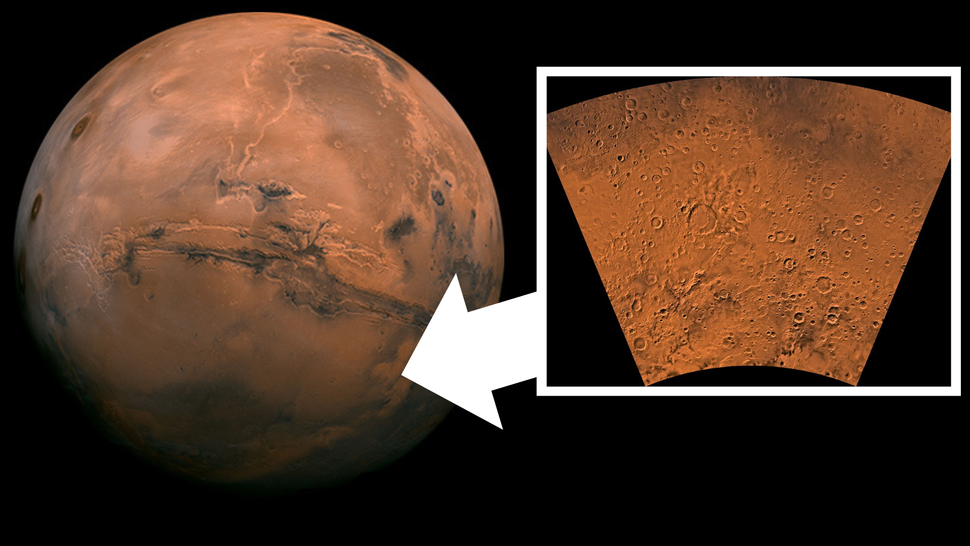Life on Mars could have thrived near active volcanoes and an ancient mile-deep lake
By Robert Lea published about 21 hours ago
"At the very least, these findings give us a larger number of places we can look for evidence of life."

(Left) Mars the Red Planet (Right) the the Eridania in the planet's southern hemisphere the site of early volcanic activity (Image credit: NASA/JPL/USGS)
Early Mars may have been more tectonically and volcanically active than previously thought. Evidence of tectonic activity around 4 billion years ago was provided by 63 new examples of various volcanoes found in a strange region of Mars with odd properties that set it apart from the rest of the Martian highlands.
A team of planetary scientists found that the landscape of the Eridania region of Mars, located in the planet's southern hemisphere, appears to have been shaped in response to changes occurring within Mars' crust, not from forces originating from above or below it. The discovery could influence the hunt for signs of ancient life on the Red Planet, currently conducted by NASA's Curiosity and Perseverance rovers.
"The large basins in this region once hosted a lake system known as the Eridania paleolake, which was up to around a mile deep when the lake was at its greatest extent," team member and planetary geologist at the Planetary Science Institute Aster Cowart told Space.com. "Long-lived volcanic sources next to abundant water may have fueled hydrothermal systems that could have nurtured life.
"At the very least, these findings give us a larger number of places we can look for evidence of life."
Unlike Earth today, modern-day Mars has little to no volcanic or tectonic activity. Additionally, because around half of the surface of the Red Planet appears to be older than 3.5 billion years, this suggests that crustal recycling hasn't happened extensively on Mars.
More:
https://www.space.com/mars-volcanically-active-4-billion-years-search-for-life?utm_source=pushly&utm_campaign=MANUAL
